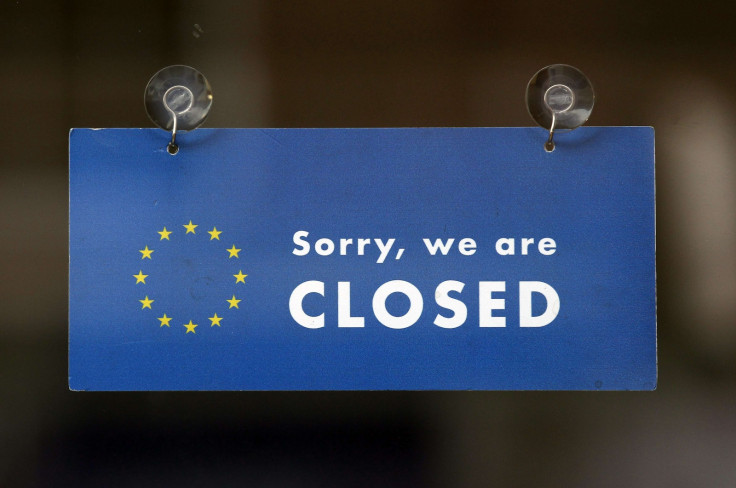EU referendum: CBI warns 'don't create another Berlin or Hadrian's Wall' with Brexit

The Confederation of British Industry has warned that leaving the European Union and isolating Britain behind a political wall will make us poorer as a nation.
"The fundamental choice here is whether Britain wants to be a global citizen or retreat behind national borders. The needs of the modern world increasingly don't recognise either the Berlin Walls or the Hadrian's Walls of the past," said John Cridland, CBI director-general.
"Political isolationism would leave us poorer," he said.
The CBI, which speaks on behalf of 190,000 businesses of all sizes and sectors, said in a statement that the EU also has a responsibility to work with the UK to get a better deal for Britons in order to keep them from opting out of the union.
"The majority of CBI member companies of all sizes want to remain in a reformed EU. But the EU has to reform and needs to be more competitive, outward looking and open.
"It must sign more trade deals, like the Transatlantic Trade & Investment Partnership (TTIP), which could be worth at least €120bn (£94bn, $146bn) every year and would create a combined market of more than 800 million people, bringing more choices for consumers at cheaper prices.
"And we also need less EU – no more lifestyle regulation on matters like employment, such as the working time directive, which should be left to member states, and no more damaging regulations on UK financial services that are vital to fuelling growth across Europe."
Prime Minister David Cameron pledged to let Britons vote for either exiting and staying within the European Union via an in/out referendum scheduled for 2017, if his Conservative party remains in power after the general election next year.
In January this year, UK Chancellor George Osborne told the EU that Britain is likely to exit the bloc unless it overhauls its structure and the power it has over its members.
Osborne said: "Our determination is clear: to deliver the reform and then let the people decide.
"It is the status quo which condemns the people of Europe to an ongoing economic crisis and continuing decline. And so there is a simple choice for Europe: reform or decline," he added.
Meanwhile, a Europe Economics report, commissioned by Business for Britain (BfB), has warned that the UK will be forced to join the euro or leave the European Union if the country does not secure "considerable reforms" to the setting of EU financial regulation.
"Britain's influence upon EU financial regulation has been an important gain of EU membership in the past," said Dr. Andrew Lilico, author of the report and director of Europe Economics.
"But that influence has waned severely since 2008, and as matters stand, with the non-eurozone EU set to shrink to only between two and five members within a decade, and with the very different interests of the eurozone dominating new EU financial regulation, the future appears likely to be one of Britain being systematically over-ruled by the eurozone.
"Changing that in any sustainable way would require not only new voting rules but also many new long-term non-eurozone EU members."
© Copyright IBTimes 2025. All rights reserved.






















